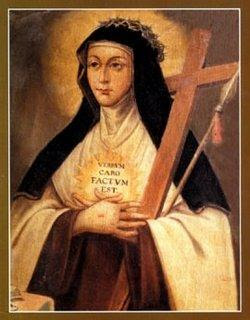St. John Chrysostom

Antioch was a capital city subject to the Roman emperor Theodosius I in 344, the year John Chrysostom was born. He was the only son of the chief commander of the Roman Imperial Army based in Syria. His mother was a Christian. Widowed at the age of 20, she never remarried but made the spiritual instruction of her children her highest priority.
Eloquence was the highest art form of the time and so John studied under the most famous orators of the age, He trained under the masters of science and literature and his advanced studies included philosophy and religion. His genius became apparent as he pleaded legal cases before the bar and at twenty, John was already famous.
His interests then turned away from the world of wealth and opportunity that was already his, and he began a serious study of Sacred Scripture.
Rejecting worldly ideas, he spent his time in prayer and silence while adopting austere penitential practices. He became aware that prayer was the great channel of heavenly graces and decided to dedicate himself entirely to God. He struggled to subdue every form of human weakness and personal vanity. To distance himself from earthly attachments, he slept on a hard floor and chose to wear a coarse gray coat.
He was called into church service by St. Meletius, Bishop of Antioch. For for three years studied under his direction and engaged in many religious discussions with his friend St. Basil.
At 30, John went to live in the mountains near Antioch with a community of monks. They devoted all morning to prayer, pious reading, and meditating on Sacred Scripture. Their food was bread with a little salt; some added oil, and for those who were weak, a few herbs. No one ate before sunset. After the meal, conversation was allowed but only on spiritual topics. They always closed their night-prayers with a meditation on the last judgment to remain vigilant.
John lived this life for 5 years. Afterward, he lived another two years as a hermit dwelling in a cave. When dampness brought on ill health, he was forced to return to the Antioch. He was later ordained a priest and became the voice of the residing bishop in 386 at the age of 42. His preaching changed the whole face of the city. Later, he was named Bishop of Constantinople.
St. John Chrysostom was a master orator. After his death in the fifth century, he was surnamed "Chrysostom" or "Golden Mouth". His profound exhortations were delivered power and eloquence. His crystal clear insights to the truth combined with his compelling logic left little room for opposition to his views. Today he is still considered one of the great spiritual orators of all time.
His sermons call those who will listen to a life of virtue, and he does it in a way that draws spontaneous assent. A pastor of a deep humility and love for the Church, the subtle boldness of his exhortations still contain a freshness creating the desire for more.


